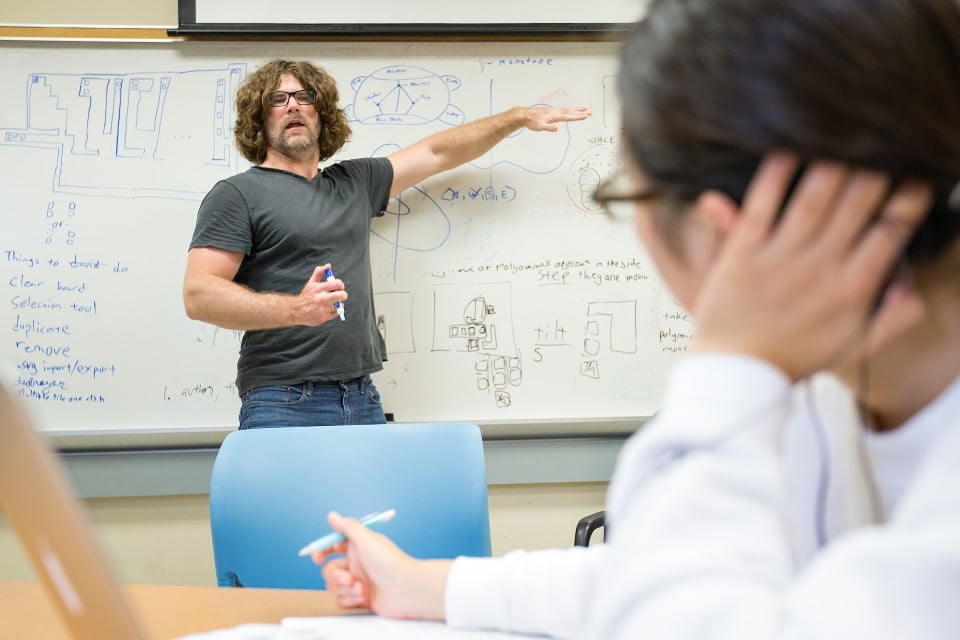By Amanda Alaniz
Rio Grande Valley, Texas – The National Science Foundation’s Division of Computing and Communication Foundations has awarded UTRGV’s Department of Computer Science a grant for their project, “Unifying Self-Assembly through Tile Automata.”
The project introduces and explores the Tile Automata abstract model of self-assembly to serve as a framework for unifying the diverse set of established and experimentally motivated models of self-assembly.
Dr. Robert Schweller, associate professor, and Dr. Tim Wylie, assistant professor, both in the Computer Science department, UTRGV College of Engineering and Computer Science, worked on the grant proposal and are part of the Algorithmic Self-Assembly Research Group (A.S.A.R.G.) at UTRGV.
The goal of the project is to better understand how to design systems of particles, such as molecules of DNA, to reliably self-assemble into complex structures based on simple rules and local interactions. Schweller said a long-term goal is to develop techniques that will allow for nanoscale matter to be “programmed” to self-assemble into target structures.
Wylie said they had been applying for other grants to fund their research projects, but they had to start from scratch with this particular one since it was a new model.
“This proposal was the culmination of years of work and months of polish,” Schweller said.
The grant awarded is a total of $495,042 over three years, beginning July 1, 2018.
The most substantial item supported by the grant, Schweller said, is wages for student research assistants.
“There are many talented undergraduate and graduate students at UTRGV that are interested and capable of doing research. This grant will allow us to grow our research group, publish more papers, and help prepare more students for graduate school,” he said.
Dr. Emmett Tomai, associate professor and interim chair for the Department of Computer Science, said the department is proud of the national recognition received by Schweller and Wylie.
“They are dedicated teachers who bring together amazing scientific research with practical, hands-on teaching and mentoring of our students at all levels of our programs. We are very proud of our excellent faculty here in computer science, whose commitment and efforts enable us to provide great educational opportunities to our students at UTRGV,” he said.
ABOUT UTRGV
The University of Texas Rio Grande Valley (UTRGV) was created by the Texas Legislature in 2013 as the first major public university of the 21st century in Texas. This transformative initiative provided the opportunity to expand educational opportunities in the Rio Grande Valley, including a new School of Medicine and a School of Podiatry, and made it possible for residents of the region to benefit from the Permanent University Fund – a public endowment contributing support to the University of Texas System and other institutions.
UTRGV has campuses and off-campus research and teaching sites throughout the Rio Grande Valley including Brownsville (formerly The University of Texas at Brownsville campus), Edinburg (formerly The University of Texas-Pan American campus), Harlingen, Weslaco, McAllen, Port Isabel, Rio Grande City and South Padre Island. UTRGV, a comprehensive academic institution, enrolled its first class in the fall of 2015; the School of Medicine welcomed its first class in the summer of 2016, and the School of Podiatric Medicine in the fall of 2022.

